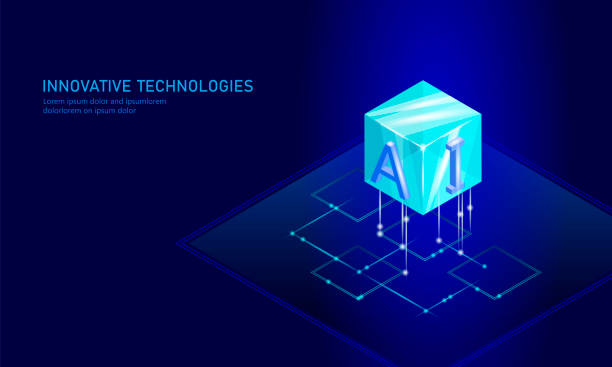
In today’s constantly evolving world, it seems like there is always a new technology on the horizon. From artificial intelligence to blockchain, the possibilities seem endless. But what exactly is emerging technology? It can be easy to get lost in the buzzwords and complex jargon surrounding these innovative developments. However, understanding what is emerging technology and how it can impact our daily lives is crucial for staying ahead of the curve. In this blog post, we’ll demystify the concept of emerging technology and explore its potential implications for the future.
Understanding the Concept of Emerging Technology
Emerging technology may sound like an overused buzzword, but it’s an essential term that encapsulates the dynamic and evolving landscape of innovation. In its essence, emerging technology is all about technological advancements that are currently under development or recently introduced, but not yet mainstream. It could be an entirely new innovation that is set to shake up our lives or a significant advancement in an existing technology that can revolutionize its current applications.
These technologies aren’t yet widely accepted, and hence, they often exist in a realm of uncertainty and potential. They are the “next big things” that could potentially impact our society or economy in profound ways, creating a ripple effect that we can’t fully predict yet.
Think about some of the tech buzzwords you’ve been hearing recently – artificial intelligence, blockchain, 3D printing, the Internet of Things (IoT) – all these fall under the umbrella of emerging technologies. Each of these innovations represents a new frontier in the technological sphere, carrying with them the promise of changing the world in unimaginable ways.
However, it’s not just about the technology itself; the term ’emerging technology’ also embraces the societal and economic impacts of such advancements. It’s a lens through which we view the intersection of innovation, society, and economy, helping us understand not just where technology is heading, but how it might reshape our world. So, when we talk about emerging technologies, we’re not just talking about cool new gadgets; we’re discussing potential game-changers that could redefine how we live, work, and interact.

The Potential and Challenges of Emerging Technologies
The realm of emerging technologies is a world teeming with possibility, packed with the promise of untapped potential and endless innovation. Just as these technologies have the capacity to revolutionize our lives, they also present unique challenges that must be navigated.
The transformative power of emerging technologies is breathtaking. Imagine harnessing the potential of AI to streamline operations and boost productivity, or leveraging blockchain’s promise of unmatched security and transparency for digital transactions. Emerging technologies could bring groundbreaking solutions to age-old problems, disrupt traditional industry practices, and even spawn entirely new industries. The possibilities are, indeed, exhilarating.
However, along with this remarkable potential comes an assortment of challenges. These technologies are new, untested, and often in a state of continuous evolution, making it difficult to predict their full impact and the potential risks they pose. Regulatory and ethical issues are often murky as laws struggle to keep pace with technology. There’s also the challenge of ensuring equitable access to these advancements and mitigating any negative societal implications, such as job displacement due to automation.
Additionally, the incorporation of these technologies into existing systems and workflows can be complex. Convincing stakeholders to embrace these new technologies can also pose challenges due to perceived risks and the need for significant upfront investment.
Navigating this landscape of potential and challenges is no easy task. However, it’s an essential undertaking for those looking to ride the wave of technological innovation. The journey into emerging technologies is a thrilling adventure that promises to reshape the future, but it’s a path that requires careful navigation and thoughtful decision-making.
Identifying Different Types of Emerging Technologies
Delving into the universe of emerging technologies, we encounter a diverse array of exciting advancements, each with unique potential and challenges. While the specifics vary, these can generally be sorted into several categories.
Firstly, we have hardware technologies, those tangible pieces of tech that are driving the future. Think robotics, 3D printing, or quantum computers. These are physical technologies that are pushing the boundaries of what we thought possible.
Next, there are software technologies – the intangible bits of code that are radically reshaping the digital world. This category includes artificial intelligence, machine learning, and natural language processing. They might not have a physical presence, but their impact is tangible and significant.
Then, we have network technologies, like the Internet of Things (IoT), 5G, and edge computing. These technologies are all about connectivity, enabling devices to communicate and share data seamlessly.
There’s also the world of data technologies, centered around managing and making sense of the vast amounts of data generated every day. Technologies like big data, predictive analytics, and data visualization fall under this umbrella.
And lastly, there are the human interface technologies that are redefining how we interact with technology. These include virtual and augmented reality, gesture control tech, and voice recognition software.
Each of these categories has its own set of advancements that are revolutionizing their respective areas. Together, they are redefining what’s possible and reshaping the future of technology. Remember, these technologies are not silos but rather interconnected pieces of a larger, ever-evolving puzzle. A change in one area often precipitates changes in others, creating a dynamic and complex web of innovation.
Why Staying Up-to-Date with Emerging Technologies is Crucial
In the rapidly shifting tech landscape, remaining conversant with emerging technologies is non-negotiable. The benefits of staying informed stretch far beyond simply keeping up with the latest gadgets. For businesses, staying at the forefront of these advancements is a strategic move. It bolsters competitiveness, provides the tools to innovate, and uncovers untapped market potential.
A grasp on these innovations also supports professional growth in our digital age. In many fields, awareness and understanding of emerging technologies is becoming as fundamental as traditional skills. For instance, knowing the potential of blockchain could make the difference in finance, just as familiarity with the power of AI could redefine roles in industries as varied as healthcare, retail or logistics.
Finally, as consumers, staying tech-savvy helps us make smart decisions. Whether it’s a new smart home device leveraging the Internet of Things or a service harnessing the power of machine learning, being aware of the latest technology can guide us to products and services that best meet our needs and align with our values. In essence, staying current with emerging technologies empowers us to actively participate in shaping the digital age, rather than just being carried along by it.
How to Stay Informed About Emerging Technologies
Navigating the vast sea of emerging technologies might seem like a Herculean task, but don’t be deterred – there are several strategies you can adopt to stay updated.
Firstly, immerse yourself in the world of technology news. Regularly following reputable tech news websites, blogs, and podcasts can keep you apprised of the latest advancements. From Wired to TechCrunch, these sources often break down complex concepts into digestible insights.
Secondly, utilize the power of social media. Follow thought leaders, industry experts, and innovative companies on platforms like LinkedIn and Twitter. Their insights and conversations can offer a real-time pulse of the tech world.
Also, participate in technology forums and online communities, like Reddit’s r/technology or Stack Overflow. These platforms facilitate knowledge exchange, allowing you to learn from diverse perspectives and experiences.
In addition, attend webinars, tech talks, and conferences, whether physically or virtually. These events can offer deep dives into specific technologies, along with invaluable networking opportunities.
Subscribing to industry-specific newsletters is another great strategy. These can provide curated insights straight to your inbox, making it easier to stay updated amidst a busy schedule.
Finally, consider taking online courses or tutorials to gain a more in-depth understanding of specific technologies. Many platforms offer free or affordable courses on a range of topics, from blockchain basics to artificial intelligence.
Remember, keeping up with emerging technologies isn’t about understanding every intricate detail; it’s about grasping the big picture, staying curious, and constantly learning.
The Future of Emerging Technologies
As we peer into the crystal ball of tomorrow, the landscape of emerging technologies teems with boundless potential and unprecedented transformation. The exact shape this future will take is still shrouded in uncertainty, but one aspect remains clear: these technologies will persist in being the architects of societal and individual evolution.
Picture a world where AI algorithms diagnose diseases with unmatched precision, where blockchain brings unparalleled transparency to transactions, or where IoT devices create smart cities of unimaginable efficiency. These are not mere speculations but potential realities sprouting from the seeds of today’s emerging technologies.
Of course, the road to these promising horizons won’t be without obstacles. We’ll grapple with evolving ethical conundrums, regulatory grey areas, and the challenge of equitable technology distribution. Despite these complexities, one thing is for certain: standing still is not an option.
As we stride into this new era, it’s vital to maintain a posture of continuous learning, curiosity, and adaptability. Embracing the disruptive force of emerging technologies means staying informed, remaining open to possibilities, and courageously navigating the challenges that emerge. This isn’t just about leveraging technology for our benefit; it’s about actively participating in the shaping of our shared digital destiny. In the intricate dance between technology and society, we all have a part to play.
Our future is interwoven with the future of technology – a tapestry of potential, brimming with both challenges and opportunities. The journey ahead is uncharted, the destination unknown, but the promise of transformation is as real as the technology that drives it. So, here’s to the future – a future we craft together in the crucible of emerging technologies.



